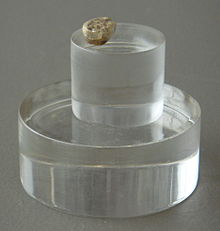Granada Geopark

The Granada Geopark (Spanish: Geoparque de Granada) is a geopark in Andalusia, Spain which was designated in 2020.[1] It is spread over 47 municipalities of a sparsely populated region. The three principal towns are Huéscar, Baza and Guadix. It includes 72 Lugares de Interés Geológico or LIGs, the Spanish term for geosites.
Geology
The Geopark is notable as a geological record of the Quaternary period.[1] Most of the territory was shaped by an extensive river system that had no outlet to the sea and drained its waters into a large lake.
A number of the geosites are of paleontological interest.
Tourism
The Geopark aims to promote tourism with a responsible attitude to the environment. The Geopark has promoted a 143 km trekking route, the "First Settlers Great Path", starting and finishing in Huéscar.[2] The name refers to the settlement of Early humans in the area, as evidenced by the geosites of Orce in particular.

Cave houses are typical of the district. Guadix is claimed to have the largest number of cave homes in Europe.[3] Some of them are let to tourists as a casa rural.
Astronomy is another activity which can be enjoyed in the geopark, thanks to the dark skies.[4]
References
- ^ a b "UNESCO designates 15 new Geoparks in Asia, Europe, and Latin America". Retrieved 8 August 2023.
- ^ "First settlers great path". geoparquedegranada. Retrieved 9 August 2023.
- ^ Fox, E (2016). "The cave dwellers of southern Spain". BBC Travel. Retrieved 9 August 2023.
- ^ Los Coloraos Astronomic Complex
External links
- Official website
37°36′31″N 2°48′20″W / 37.60864°N 2.80556°W / 37.60864; -2.80556











